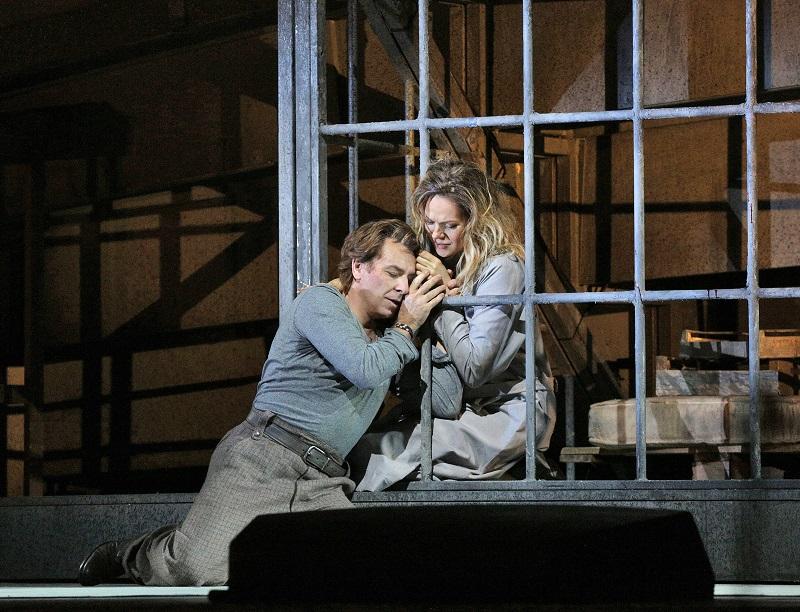 |
| Light and darkness (Edinburgh sunset, photo by me) |
Saturday, March 19, 2016
Crossing Over: Sacred Music for the Agnostic
Friday, March 4, 2016
Il tempo vola... baciami! Manon Lescaut at the Met
 |
| Thwarted lovers: Alagna and Opolais in Act III (Photo (c) Ken Howard/Met Opera) |
Wednesday, March 2, 2016
Brief Notes on Beethoven in Boston
While recently attending a conference, I took time off to attend a very alliterative concert. Harry Christophers helmed the Handel and Haydn Society in a concert devoted to Beethoven at Boston's Symphony Hall. It was satisfying and stimulating to listen to, as well as to name. My brain being reduced by the weekend's academic labors to something like mush, my notes will be brief. I'm making them anyway because Friday night's concert offered me the exhilarating experience of hearing a beloved composer in new ways.
The evening opened with a nod to Handel, with a crisp rendition of the "How Excellent Thy Name" chorus from Saul. The forces of the Collaborative Youth Concerts were impressively professional in manner and expressive in diction. I'm sure there's been scholarly ink spilled on the political and social significance of Old Testament oratorios, and the orchestra's vibrant performance had me wondering where I could find it.
The evening opened with a nod to Handel, with a crisp rendition of the "How Excellent Thy Name" chorus from Saul. The forces of the Collaborative Youth Concerts were impressively professional in manner and expressive in diction. I'm sure there's been scholarly ink spilled on the political and social significance of Old Testament oratorios, and the orchestra's vibrant performance had me wondering where I could find it.
Subscribe to:
Posts (Atom)